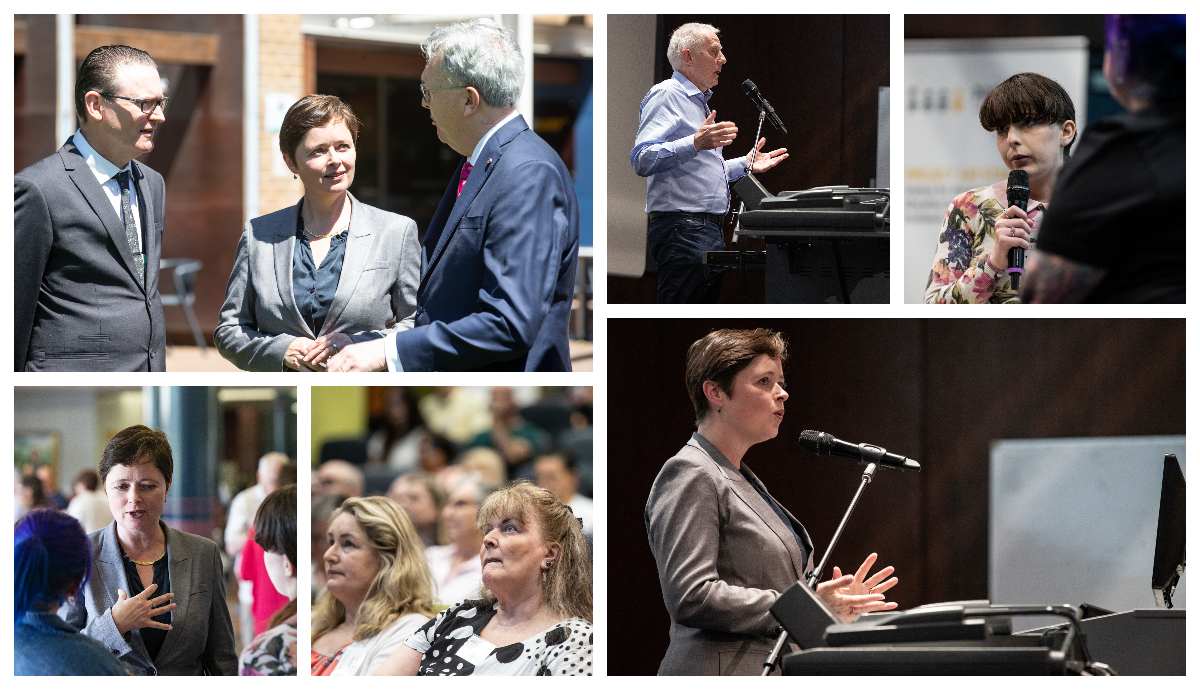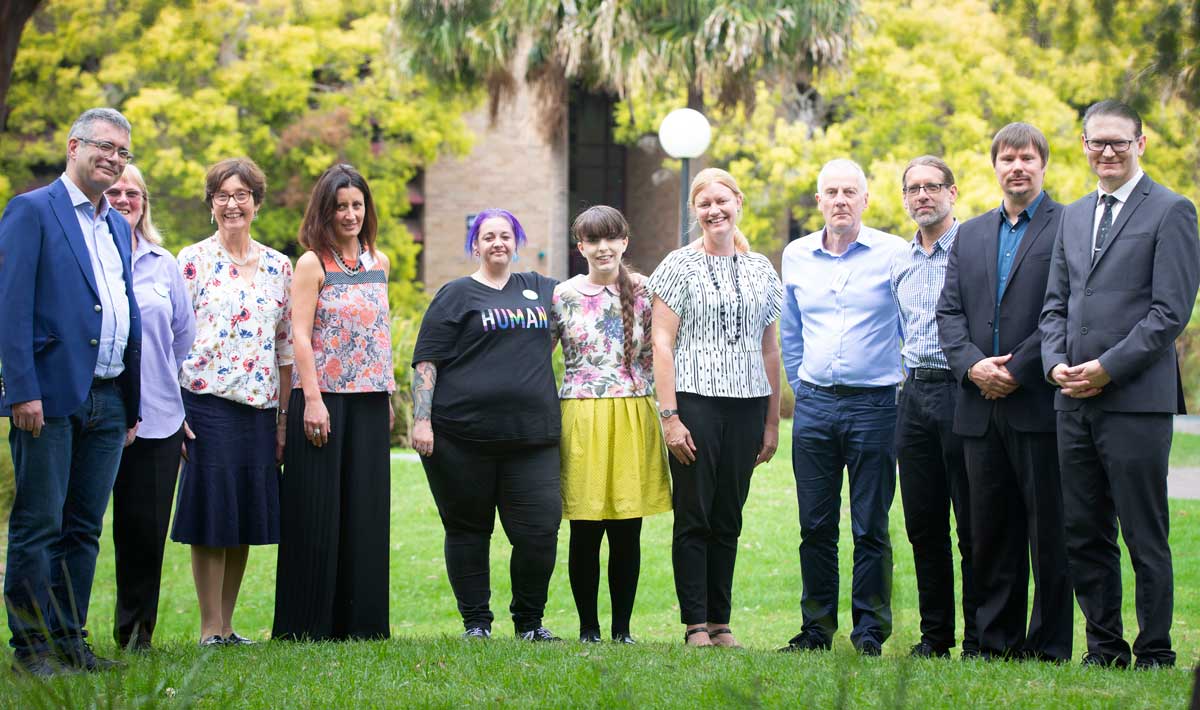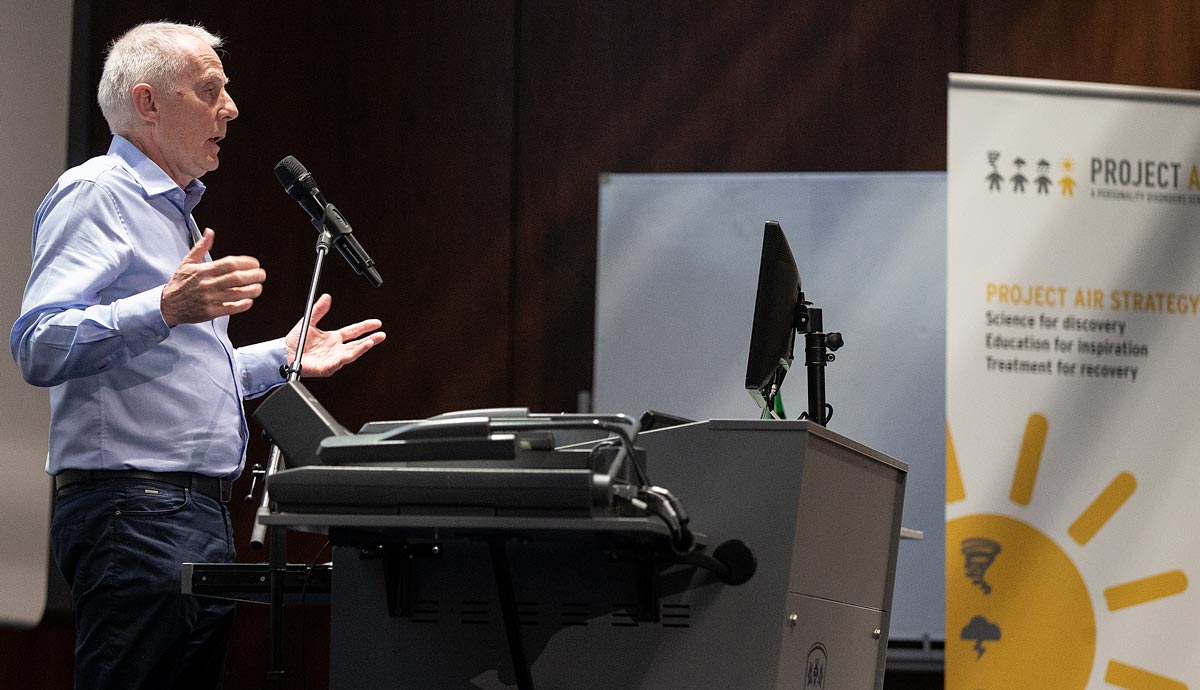November 2, 2018
Not untreatable, just not treated fairly
Conference provides new hope for helping people with antisocial personality disorder
An international conference on treating personality disorders will this year feature insights into how mental health professionals can help people with antisocial personality disorder (ASPD), a destructive condition that has stumped clinicians.
Society has viewed people with ASPD as having no regard for societal views of right and wrong and a lack remorse for antisocial behaviour.
There may be severe symptoms including aggression, violence, alcohol and drug abuse, which potentially may lead to time in the criminal justice system.
Finding a way to communicate and modify behaviours remains a challenge, but there are now approaches that are offering new promise.
The topic will be a key part of the program at the 12th International Conference on the Treatment of Personality Disorders, held today (Friday 2 November) at the University of Wollongong.

The conference is organised by mental health professionals from the UOW-based Project Air Strategy for Personality Disorders, a leader in research, education and treatment that promotes recovery.
It is one of few conferences in Australia that focuses on personality disorders and provides a forum for close to 300 delegates involved in research, policy, treatment and care to improve mental health service delivery to children, young people, adults and their families.
This year’s conference theme is ‘New ways of working with antisocial personalities and early intervention’, featuring work led by renowned UK psychiatrist Professor Anthony Bateman.
Professor Bateman said that people with ASPD often have contact with mental health professionals in the justice system, but any improvements in behaviours there are not easily transferred to community living.
“Society portrays them as failing to conform to social norms, for which they are punished,” Professor Bateman said.
“Yet they feel disrespected, misunderstood, victimised, and ill-treated. The person is trapped within a socially toxic world.
“Research so far has not led to clear recommendations for treatment. So, the disorder remains a significant problem for the individuals themselves and for society.”

Professor Bateman, who is a Consultant to the Anna Freud Centre, London; Visiting Professor University College, London; Affiliate Professor in Psychotherapy University of Copenhagen, will outline how Mentalization Based Treatment (MBT) can be used to promote change.
MBT is based on techniques that make a person think about or “mentalise” what’s going on in their own and others minds, or to see their actions from the outside so they can reflect and possibly change.
Project Air Strategy Director Professor Brin Grenyer said: “In the past people with antisocial personality disorder were considered to be untreatable.
"These people often end up in the justice system and the challenge is in getting clinician engagement with the client when there is such a high level of anger present.
"There is new hope being presented here at our conference for these people.”
Project Air Strategy was formed in 2010 and builds on foundation work going back to 2000. It is being implemented in services in NSW, Victoria, and Queensland through health services, justice departments and children’s networks.

It was born out of a need to develop a model of care for people with borderline personality disorders, which occur in about 6.5 per cent of the community and represent about 25 per cent of all mental health admissions to inpatient units and emergency departments.
NSW Minister for Mental Health Tanya Davies today officially opened the conference and said the State Government’s collaboration with the Project Air Strategy gave people living with a personality disorder in NSW better access to the right supports.
“We are seeing this unique project significantly reduce presentations to emergency departments and shorten hospital stays, because the right help is getting to people faster,” Mrs Davies said.
“The NSW Government this year invested an additional $5.5 million to the project, to ensure earlier diagnosis and more tailored treatments for people living with a personality disorder.”
The model of care Project Air has developed has helped reduce presentations in emergency departments, reduced admissions and length of stays in hospitals, while increasing confidence and skills in family, carers and clinical staff.
More: projectairstrategy.org
